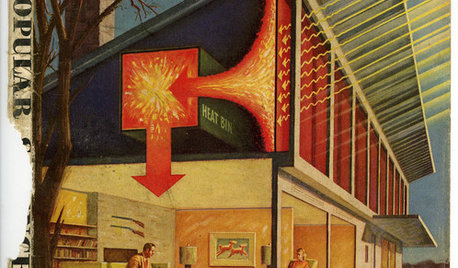How the Credit Crises Occured.
Zoe52
15 years ago
Related Stories

GREEN BUILDINGChampioning the Solar House, From the 1930s to Today
Homes throughout history that have used the sun offer ideas for net-zero and passive homes of the present, in a new book by Anthony Denzer
Full Story
MOVING5 Risks in Buying a Short-Sale Home — and How to Handle Them
Don’t let the lure of a great deal blind you to the hidden costs and issues in snagging a short-sale property
Full Story
DECORATING GUIDES9 Planning Musts Before You Start a Makeover
Don’t buy even a single chair without measuring and mapping, and you’ll be sitting pretty when your new room is done
Full Story
REMODELING GUIDESWhat to Consider Before Starting Construction
Reduce building hassles by learning how to vet general contractors and compare bids
Full Story
REMODELING GUIDESHome Building: The Case for Cautious Optimism
Ben Bernanke's speech at the 2012 International Builders Show: Gray clouds and silver lining
Full Story
HOUZZ TOURSDesign Lessons From a 10-Foot-Wide Row House
How to make a very narrow home open, bright and comfortable? Go vertical, focus on storage, work your materials and embrace modern design
Full Story
ROOTS OF STYLERoots of Style: The Birth of Modern Architecture
Learn how Prairie, Craftsman, art deco and other styles of the early 20th century came to influence architecture today
Full Story
HOUSEKEEPINGHow to Clean Your Fridge, Inside and Out
Keep your refrigerator clean and fresh, while you gain storage space and lose those ‘UFOs’
Full Story
ARCHITECTUREMust-Know Modern Homes: The Rietveld Schröder House
See how Gerrit Rietveld dared to flout convention by manipulating forms and colors
Full Story
LIFESo You're Moving In Together: 3 Things to Do First
Before you pick a new place with your honey, plan and prepare to make the experience sweet
Full Story






Nancy in Mich
logic
Related Professionals
Plainfield Architects & Building Designers · West Jordan Architects & Building Designers · Champaign General Contractors · Euclid General Contractors · Jamestown General Contractors · Janesville General Contractors · Kilgore General Contractors · Marysville General Contractors · Mount Laurel General Contractors · Oxon Hill General Contractors · Poquoson General Contractors · Texas City General Contractors · West Melbourne General Contractors · Woodland General Contractors · Bel Air North Interior Designers & DecoratorsUser
Nancy in Mich
logic
logic
User
brickeyee
logic
dreamgarden
logic
dreamgarden
logic
brickeyee
logic
brickeyee
logic
logic